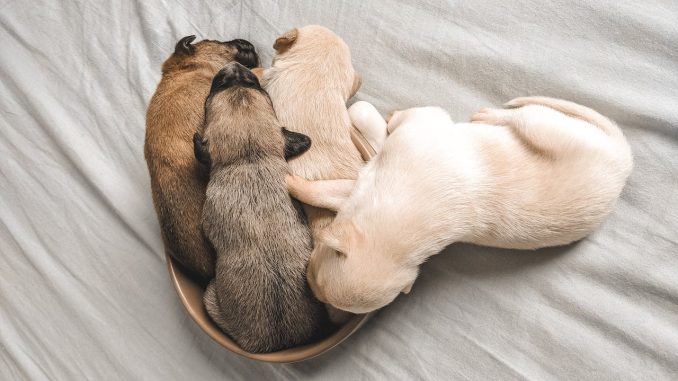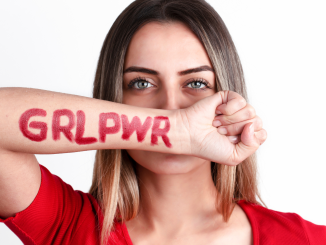
Puppy parenthood is an exciting journey with wet noses, wagging tails, and lots of fun. Statistics indicate that over 65 million households own at least one dog, making them the most popular pets in the US. If you’re a first-time puppy parent or your dog has given birth to a little bundle of joy, this guide will help you navigate the ins and outs of raising a newborn canine.
It’s important to understand the essentials of puppy care before adding a furry little creature to your family. Here’s how to create a healthy environment for your puppy.
1. Start Housetraining As Early As Possible
Start potty-training your newest canine family member as early as possible. It’s recommended that you put them on housetraining when they are three months old. Since puppies have little to no control over their bladder and bowel movement, housetraining may take anywhere from 4 to 6 months.
A few simple tips help you potty-train them quickly, e.g., taking them out first thing in the morning, rewarding them for urinating in the right place, and looking for signs like sniffing or scratching.
2. Train the Little Pup for Good Behavior
The training begins from an early age, particularly because young dogs need to learn how they ought to behave in your house. Don’t let them get away with bad behavior just because they’re your cute little bundles of joy. Teach your puppy the value of good manners, and you’ll be setting them up for a life of loyalty, obedience, and positive social behavior.
If you are struggling with puppy training, then contact I Said Sit, dog training school, to help you out in this case. This LA-based training facility will teach your furry friend socialization manners. If you want, I Said Sit trainers can give you private sessions on how to train your dog.
3. Get all The Necessary Puppy Supplies
Get all the supplies necessary for your pet before their arrival. Make sure you stock up on the toys, utensils, and entertainment items needed to bring up a cute little canine. Find out which food’s the best for your pup and buy enough to sustain them for the next few weeks.
Buy a sleeping crate as well, in which the cub can get 18 to 19 hours worth of sleep.
Similarly, invest in a quality ID tag, collar and leash, GPS activity, and other items to ensure the safety and security of your furry friend.
4. Designate a Space for Them
Fence off a part of your house and designate it your pup’s territory. It’s where the pup will play, sleep, and learn to interact with its environment. Also, they can spend some alone time in this personal space without being disturbed by other family members.
It’ll be much easier to supervise your pup’s well-being if they have a territory of their own. That’s because dogs are highly territorial animals, so respecting their personal space is a great way to have them come to terms with their instincts and grow into well-behaved adults.
5. Sleep In The Same Room With Them
Try to spend the first few nights sleeping in the same room as your puppy, especially if the pup needs to adjust to being without their mother. A survey shows that around 76% of American pet owners do let their dogs sleep in their beds; it’s a great way to console your pup if they have nightmares.
Sharing the same room with them will help you create a stronger bond with your newest family member, too.
6. Pet-Proof your Home Right Away
Don’t disregard your pup’s safety, especially when they are unsupervised and, worse, home alone. Many young pups injure themselves due to the absence of proper pet-proofing in the house. So, why don’t you make your house a safer environment for these vulnerable younglings by pet-proofing the whole place?
Like human babies, puppies are naturally curious and like to explore things. That’s why you need to keep all hazards and valuables away from their reach, including trash, plants, breakables, important documents, chemicals, and electrical items and cords.
Pet-proofing ensures the puppy doesn’t trip over anything while exploring their new surroundings.
7. Give Them a Diet Appropriate for Dogs
Choose the right dietary options for your little puppies to make sure they’re getting all the nutrients needed for proper growth. Stay away from synthetic preservatives, flavors, and colors when you go shopping for dog food. It’s better to look for formulations rich in essential nutrients like protein, fat, vitamins, and minerals.
You should consult your vet about the pup’s specific dietary needs based on their breed. If you have adopted a pup from a shelter, avoid sudden dietary changes that might upset their stomachs. Bear in mind that portion control, consistency, and regular feeding times are the essentials of a happy and healthy diet for puppies.
8. Take Great Care Of The Puppy’s Health
Here are some further essentials of proper puppy care that you have to remember:
- Take your puppies to your nearest vet for regular medical checkups. Use this opportunity to ask your vet any questions you might have about raising a little pup.
- Supervise these young puppies when they’re away to make sure they don’t harm themselves or pee on your furniture. After all, the newborns are just active for 5 hours a day.
- Give them plenty of opportunities to socialize, especially if they have left their mother and litter behind. Socialization creates well-behaved and well-mannered dogs.
Sometime later, you will have to vaccinate your puppies and start taking them out for regular walks.
Conclusion
This guide explains some very important puppy care tips to help you raise your newest four-legged family members as lovingly as possible. Start by pet-proofing your home and procuring all essential puppy care supplies. Housetrain your puppy from the very start and consider joining a training facility for that.
Take great care of their dietary, social, and physical well-being. Give them the attention they deserve and watch them grow into healthy, well-behaved dogs that will always be by your side with utmost loyalty.




